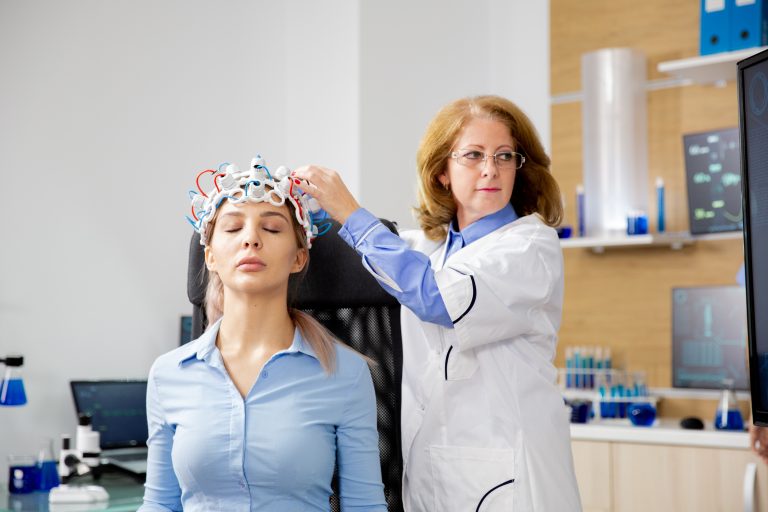Understanding the distinction between sciatica and a herniated disc can be crucial for effective diagnosis and treatment. Both conditions involve nerve pain and can cause significant discomfort, but they are not the same. At Spinal Recovery Center in Warren, Michigan, we specialize in treating both conditions and providing relief through personalized care. This article explores the differences between sciatica and herniated discs, their symptoms, causes, and treatment options.
What is Sciatica?
Sciatica is a term used to describe pain that radiates along the path of the sciatic nerve, which branches from your lower back through your hips and buttocks and down each leg. Typically, sciatica affects only one side of the body.
Common Symptoms of Sciatica:
- Radiating Pain: Pain that starts in the lower back or buttock and travels down the leg.
- Sharp Pain: A sharp, burning sensation that can be severe.
- Numbness and Tingling: Numbness, tingling, or muscle weakness in the leg or foot.
- Worsened by Sitting: Pain that intensifies when sitting for long periods.
- Leg Pain: Pain in the leg that is often more intense than lower back pain.
Common Causes of Sciatica:
- Herniated Disc: The most common cause, where the disc presses on the sciatic nerve.
- Spinal Stenosis: Narrowing of the spinal canal compresses the nerve.
- Piriformis Syndrome: Tightening or spasms of the piriformis muscle can irritate the sciatic nerve.
- Spondylolisthesis: A condition where one vertebra slips over another, pinching the nerve.
What is a Herniated Disc?
Herniated Disc (also known as a slipped or ruptured disc) occurs when the soft inner gel of a spinal disc pushes out through a tear in the tougher outer layer, potentially irritating nearby nerves.
Common Symptoms of a Herniated Disc:
- Localized Pain: Pain in the lower back or neck, depending on the location of the herniated disc.
- Radiating Pain: Pain that radiates to the arms or legs if the herniation compresses nearby nerves.
- Numbness and Tingling: Sensations of numbness or tingling in the affected area.
- Muscle Weakness: Weakness in the muscles served by the affected nerves.
- Increased Pain with Movement: Pain that worsens with certain movements, like bending or twisting.
Common Causes of a Herniated Disc:
- Degenerative Disc Disease: Age-related wear and tear of the discs.
- Injury or Trauma: Sudden impact or heavy lifting can cause a disc to herniate.
- Repetitive Strain: Repeated movements that stress the spine.
- Genetics: A family history of disc problems can increase risk.
Key Differences Between Sciatica and Herniated Disc
- Nature of the Condition:
- Sciatica: Describes a symptom (nerve pain) caused by compression or irritation of the sciatic nerve.
- Herniated Disc: Describes a specific spinal condition where the disc material presses on nerves, which can cause sciatica.
- Pain Location:
- Sciatica: Pain primarily radiates down the leg.
- Herniated Disc: Pain may be localized in the back or neck and can radiate to the limbs if nerves are compressed.
- Causes:
- Sciatica: Often caused by a herniated disc, but can also be due to other conditions like spinal stenosis or piriformis syndrome.
- Herniated Disc: Caused by disc degeneration, injury, or repetitive strain.
Diagnosis and Treatment
Diagnosis:
- Physical Examination: Assessing symptoms and conducting physical tests to determine the source of pain.
- Imaging Tests: MRI, CT scans, or X-rays to visualize the spine and identify herniated discs or nerve compression.
Treatment Options:
- Non-Surgical Treatments:
- Physical Therapy: Exercises to strengthen muscles, improve flexibility, and relieve pressure on nerves.
- Chiropractic Care: Spinal adjustments to improve alignment and reduce nerve compression.
- Medications: Pain relievers, anti-inflammatories, and muscle relaxants.
- Heat and Cold Therapy: Applying heat or cold packs to reduce pain and inflammation.
- Interventional Treatments:
- Epidural Steroid Injections: Injections to reduce inflammation and alleviate pain.
- Nerve Blocks: Injections to block pain signals from specific nerves.
- Surgical Treatments:
- Microdiscectomy: Removing the herniated portion of the disc to relieve nerve pressure.
- Laminectomy: Removing part of the vertebra to widen the spinal canal and reduce nerve compression.
Why Choose Spinal Recovery Center?
At Spinal Recovery Center in Warren, Michigan, we are dedicated to providing comprehensive care for both sciatica and herniated discs. Our experienced team of chiropractors, physical therapists, and pain management specialists work together to develop personalized treatment plans tailored to your specific needs. We utilize state-of-the-art techniques and a holistic approach to help you achieve lasting relief and improved quality of life.
For more information or to schedule a consultation, visit our website or call us directly. Let us help you understand the differences between sciatica and herniated discs and find effective solutions for your pain.




